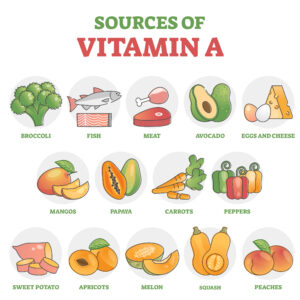Vitamin D isn’t just another nutrient — it’s a powerful hormone your body makes when sunlight hits your skin. That’s why it’s often called the “sunshine vitamin.”
But here’s the challenge: Many people don’t get enough sunlight or vitamin D-rich foods, which makes deficiency very common. Studies suggest over 40% of Americans have low levels. (Forrest & Stuhldreher, 2011).
Why Vitamin D Is So Important
Vitamin D does more than support bone strength. It acts like a hormone, influencing multiple systems in the body.
-
Bone and Muscle Health: Vitamin D helps the body absorb calcium and phosphorus, two minerals essential for bone strength and muscle function. A lack of vitamin D increases the risk of osteoporosis and fractures, especially in older adults [(Holick, 2007, New England Journal of Medicine)].
-
Immune Function: Adequate vitamin D levels support the immune system, reducing the risk of respiratory infections and autoimmune conditions
-
Mood and Brain Health: Research links vitamin D deficiency with a higher risk of depression and cognitive decline.
-
Sleep Support:: Vitamin D is proven to provide better sleep quality (“The world epidemic of sleep disorders is linked to vitamin D deficiency” – Gominak & Stumpf, 2012).
Common Sources of Vitamin D
Since few foods naturally contain vitamin D, sunlight and supplementation often play the biggest role in maintaining healthy levels.
-
Sunlight: The body can produce vitamin D after 10–30 minutes of midday sun exposure on the skin, depending on skin tone, location, and season [(Holick, 2007, NEJM)].
-
Foods: Fatty fish (salmon, sardines, mackerel), egg yolks, and fortified foods such as milk, orange juice, and cereals provide vitamin D.
-
Supplements: Vitamin D3 (cholecalciferol) is more effective at raising blood levels than vitamin D2 (ergocalciferol).
How Much Vitamin D Do You Need?
The recommended dietary allowance (RDA) varies by age:
-
Adults under 70: 600 IU per day
-
Adults over 70: 800 IU per day
-
Some experts suggest higher levels (1,000–2,000 IU daily) may be beneficial for certain populations.
Blood tests are the best way to determine vitamin D status.
Risks of Deficiency
A lack of vitamin D can lead to:
-
Rickets in children, a condition causing bone weakness and deformities
-
Osteoporosis and fractures in adults
-
Higher risk of infections, fatigue, and mood disorders
People at higher risk include those with darker skin, limited sun exposure, older adults, and individuals with digestive disorders that reduce nutrient absorption.
Key Nutrients That Work With Vitamin D
Vitamin D works best with these other nutrients:
- Magnesium – supports vitamin D metabolism.
- Vitamin A – balances fat-soluble vitamin intake (naturally found in cod liver oil, along with vitamin D).
Final Thoughts
Vitamin D is more than just a nutrient — it’s a foundation for bone health, immune strength, and mood improvement. If you’re not getting enough from sunlight and food, supplementation can help fill the gap.
FAQ – Frequently Asked Questions
Q: Can I get enough vitamin D from food alone?
A: It’s possible, but difficult. Fatty fish and fortified foods help, but most people still need sunlight or supplements.
Q: Is too much vitamin D harmful?
A: Yes. Excess vitamin D can cause calcium buildup in the blood, leading to kidney and heart issues. Stick to safe daily limits unless advised otherwise by a professional.
Q: Does sunscreen block vitamin D production?
A: Sunscreen can reduce vitamin D synthesis. Moderate sun exposure without burning usually provides enough.
Q: Should I take vitamin D2 or D3?
A: Vitamin D3 is generally more effective at raising blood levels, though both can be beneficial.
Nutrition Breakthroughs
This natural health news is provided by Nutrition Breakthroughs, a publisher of nutrition articles and supplier of effective natural remedies since 2002. Nutrition Breakthroughs makes Sleep Minerals II, the effective natural sleep aid with calcium, magnesium, zinc and vitamin D.





